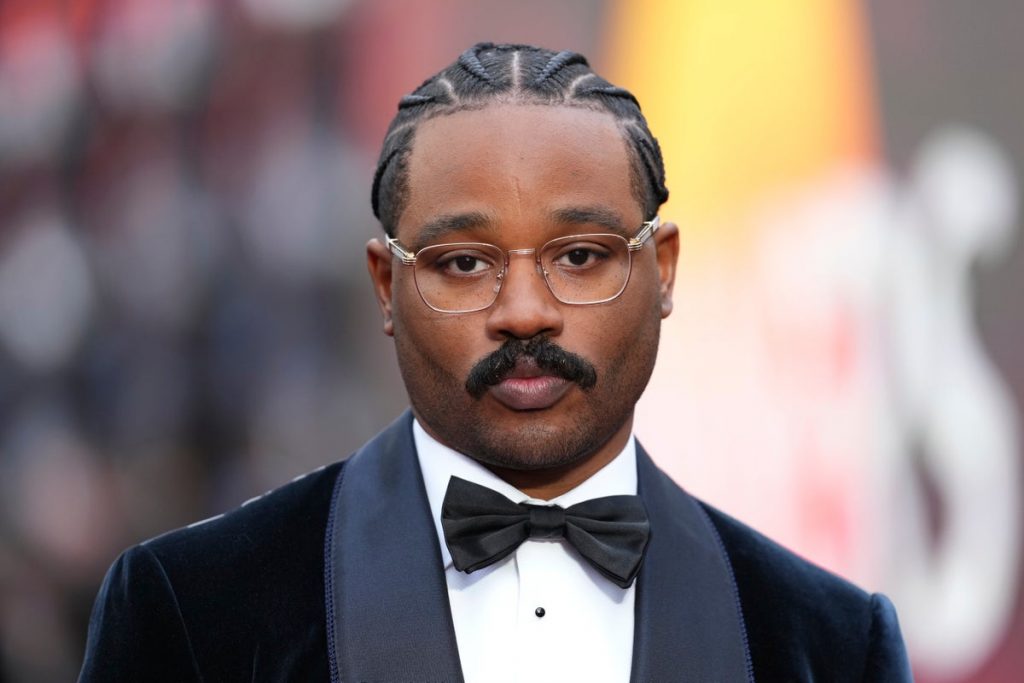How Ryan Coogler’s Sinners Led to A Warner Bros Deal

In an industry where screenwriters are often treated as disposable cogs in the filmmaking wheel—hired to execute someone else’s vision, rewrite drafts they no longer control, or watch their work be filtered or redirected through a web of studios and producers—ownership of the work writers create is a revolutionary concept in Hollywood. This is in stark contrast to how screenwriters are treated in the rest of the developed world who own the copyright to their films.
Few screenwriters ever retain rights to their scripts, especially when working within the Hollywood system. But Ryan Coogler has begun to reshape that narrative. Hopefully, it will shift the paradigm so that intellectual property is controlled by its creator.
This ownership model allows screenwriters to earn not just fees, but long-term equity in their work. It allows payment from all sources, more like the residual model as opposed to the up-front, one-off payment structure many studios prefer. Of course, there are bonus points which are largely an accounting illusion rather than a bonus payment for the commercial exploitation and retention of their creative vision.
Ryan Coogler’s deal with Warner Bros. allows writers to think more strategically about their creative careers. They can behave more like creators, owners, and entrepreneurs rather than simply selling their scripts and wait for the check in the mail. Hopefully, Coogler’s blueprint will encourage better dealmaking in the future.
Ryan Coogler’s Filmmaking Record
Coogler broke out with the independent drama Fruitvale Station (2013), which won multiple awards at both Sundance and Cannes. He followed it with Creed (2015), a revival of the Rocky franchise, and Black Panther (2018), which shattered box office records and reshaped what a superhero film could be. While Black Panther was a Marvel property, Coogler’s direction—and co-writing of the screenplay—cemented him as a major creative force with a singular vision.
Unlike many screenwriters who remain behind the scenes, Coogler has consistently acted as a writer-director-producer—asserting control over his projects and branding himself as a visionary. With Sinners, a period crime drama that blends noir with socially conscious themes, Coogler has taken things further by retaining copyright ownership. This means that he—not the studio—ultimately controls how the story is used, adapted, or franchised. He has the power to license it, spin it into a series, or sell distribution rights on his own terms.
This kind of ownership is exceptionally rare, especially at major studios, where screenplays are typically treated as “work-for-hire,” meaning the company that buys the script owns all the legal rights. Coogler’s achievement demonstrates both his negotiating power and his vision for long-term creative and financial control.

Ryan Coogler
Ryan Coogler: A Case Study in Creative Autonomy
Let’s start by looking at the details of the deal:
Ryan Coogler’s deal with Warner Bros. for his original film Sinners is groundbreaking because it grants him ownership of the film’s rights after 25 years, a rare arrangement in Hollywood typically reserved for a few auteurs like Quentin Tarantino and Jim Jarmusch. This means that starting in 2050, Coogler will control all licensing, distribution, remakes, sequels, merchandise, and streaming rights, allowing him to fully profit from the film’s long-term value.
Key details of the deal include:
- Final Cut Privilege: Coogler retains full creative control over the film’s final version, ensuring his artistic vision is preserved.
- First-Dollar Gross Participation: He receives a share of box office revenue from the very beginning, rather than waiting for the studio to recoup costs via a net profit model, providing immediate financial benefit.
- Rights Reversion: The copyright and ownership revert to Coogler 25 years after initial release, ultimately giving him long-term control and the ability to build a legacy from the film, recuts, spinoffs, sequels, and new formats.
- Studio’s Right of First Refusal:Warner Bros. retains the option to continue distributing the film after rights revert, but Coogler still holds ultimate ownership.
[More: “Sinners” Is Ryan Coogler’s Bluesy Love Letter To Horror Films]
Why Coogler succeeded in securing this deal
- Established Track Record: Having directed major critical and commercial hits like Black Panther and Creed, Coogler is a proven box office draw and creative force, giving Warner Bros. confidence to agree to unique terms.
- Personal and Cultural Significance: Sinners is deeply personal, inspired by Coogler’s family roots and themes of Black ownership and agency, motivating him to fight for true ownership rather than just a paycheck.
- Shifting Industry Dynamics: The deal reflects a broader trend toward empowering auteurs with more control and ownership, as studios seek to attract top talent by offering alternatives to traditional lump-sum payouts.
- Negotiation Leverage: Coogler packaged his demands upfront—final cut, first-dollar gross, and rights reversion—and Warner Bros. accepted, recognizing the film’s commercial potential and his creative stature.
Why Ownership Matters
In most traditional screenwriting deals, writers are paid a fee—sometimes large, sometimes modest—and then walk away. They have no equity, no royalties beyond WGA residuals, and no ongoing participation in the success of the film.
Compare that to musicians who retain rights to their masters, or authors who sell film options but keep the rights to their books. Ownership creates residual value, licensing potential, and artistic leverage. When you own your work, it becomes an asset that can continue to generate income, evolve into other formats, or attract investors.
Ryan Coogler’s ownership of Sinners creates several key advantages:
- Creative Control: He can approve (or reject) changes to the script or direction.
- Long-Term Revenue: When Sinners becomes profitable, he profits from merchandising, adaptations, or sequels.
- Brand Building: Owning the IP allows him to build a storytelling universe, not just a one-off project.
- Cultural Legacy: Ownership allows artists to control how their work is preserved, represented, or reimagined over time.
In a media landscape increasingly driven by intellectual property, writers who own their stories are better positioned to thrive financially and creatively. The extreme risk aversion model will never disappear in studio decisions, but the outsized reliance on it is waning.
Join the Discussion!
Related Articles
Browse our Videos for Sale
[woocommerce_products_carousel_all_in_one template="compact.css" all_items="88" show_only="id" products="" ordering="random" categories="115" tags="" show_title="false" show_description="false" allow_shortcodes="false" show_price="false" show_category="false" show_tags="false" show_add_to_cart_button="false" show_more_button="false" show_more_items_button="false" show_featured_image="true" image_source="thumbnail" image_height="100" image_width="100" items_to_show_mobiles="3" items_to_show_tablets="6" items_to_show="6" slide_by="1" margin="0" loop="true" stop_on_hover="true" auto_play="true" auto_play_timeout="1200" auto_play_speed="1600" nav="false" nav_speed="800" dots="false" dots_speed="800" lazy_load="false" mouse_drag="true" mouse_wheel="true" touch_drag="true" easing="linear" auto_height="true"]










You must be logged in to post a comment Login